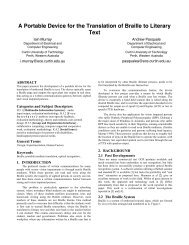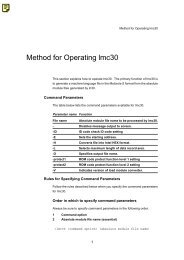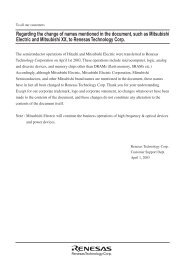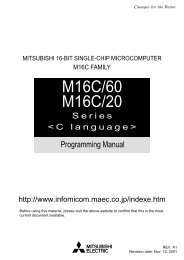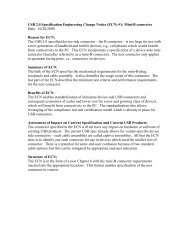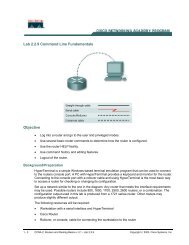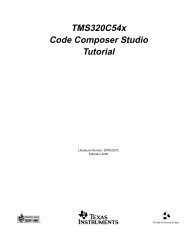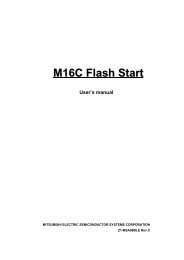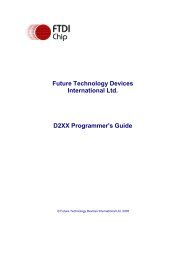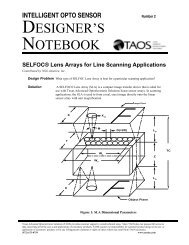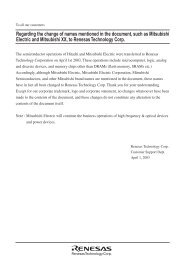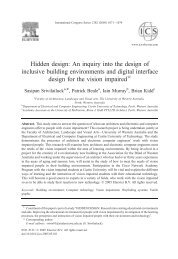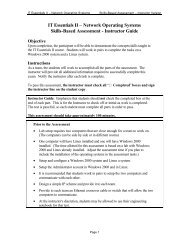"TMS320C55x DSP Library DSPLIB Programmer's Reference"
"TMS320C55x DSP Library DSPLIB Programmer's Reference"
"TMS320C55x DSP Library DSPLIB Programmer's Reference"
Create successful ePaper yourself
Turn your PDF publications into a flip-book with our unique Google optimized e-Paper software.
Calling a <strong>DSP</strong>LIB Function from Assembly Language Source Code3.3 Calling a <strong>DSP</strong>LIB Function from Assembly Language Source CodeThe <strong>TMS320C55x</strong> <strong>DSP</strong>LIB functions were written to be used from C. Callingthe functions from assembly language source code is possible as long as thecalling-function conforms with the Texas Instruments C55x C compiler callingconventions. Refer to the <strong>TMS320C55x</strong> Optimizing C Compiler User’s Guide,if a more in-depth explanation is required.Realize that the TI <strong>DSP</strong>LIB is not an optimal solution for assembly-onlyprogrammers. Even though <strong>DSP</strong>LIB functions can be invoked from anassembly program, the result may not be optimal due to unnecessary C-callingoverhead.3.4 Where to Find Sample CodeYou can find examples on how to use every single function in <strong>DSP</strong>LIB, in theexamples subdirectory. This subdirectory contains one subdirectory for eachfunction. For example, the examples/araw subdirectory contains the followingfiles:araw_t.c: main driver for testing the <strong>DSP</strong>LIB acorr (raw) function.test.h: contains input data(a) and expected output data(yraw) for the acorr(raw) function as. This test.h file is generated by using Matlab scripts.test.c: contains function used to compare the output of araw function withthe expected output data.ftest.c: contains function used to compare two arrays of float data types.ltest.c: contains function used to compare two arrays of long data types.ld3.cmd: an example of a linker command you can use for this function.Using <strong>DSP</strong>LIB3-5



